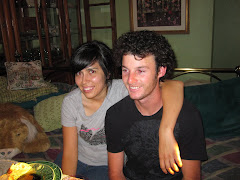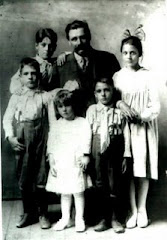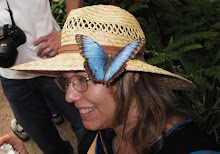
King Saul has been occupied protecting the nation of Israel from the Philistines, when he returns home, he receives a report that David is now residing at En-gedi. Saul proceeded to renew his pursuit of David.
At En-gedi, Saul entered a cave to ease nature. David, who had been hiding there in the back of the cave, crept up and cut off the skirt of Saul's garment but spared his life, saying that it was unthinkable on his part to harm the king, "for he is the anointed of Jehovah" David then assures King Saul that no harm will come to Saul or his family by his hand. David remains faithful to Jehovah's arrangement, even though Saul is treating him unjustly. Saul, realizing David could have killed him, returns to his home. (1 Sam 24:1-22)

Not long after this, David hears of Samuel's death. David must have been extremely sad to loose this friend and advisor. David still in exile took up dwelling in the Wilderness of Paran. He and his men extended kindness to Nabal, a wealthy stock raiser whose work was in Carmel, to the south of Hebron. Having spent many months protecting the flocks of this wealthy man, David and his men were ready to share in the rejoicing at the time of shearing the sheep. This time much like the farmers harvest time, is marked with being generous to all who contributed to the work involved throughout the year. Only Nabal was an ingrate, he rebuffed David, refusing to recognize the contribution David and his men made in behalf of his household. David's anger flared at the injustice of this indifference and was about to take action! Quick thinking on the part of Nabal's wife Abigail stayed David's hand from exterminating all the males of Nabal's household. David was corrected, appreciating Abigail's sensibleness in this heated situation. Nabal, who would not be corrected or peaceable was stricken by Jehovah and died. When David heard of Nabal's death, he married the widow, so now, in addition to Ahinoam from Jezreel, David had yet another wife, Abigail of Carmel. (1Sam. 25:1-44; 27:3)
 For the second time David took refuge in the Wilderness of Ziph, and again the hunt was on. David likened Saul and his 3,000 men to those searching "for a flea, just as one chases a partridge upon the mountains." One night David and Abishai crept into the sleeping camp of Saul and made off with Saul's spear and water jug. Abishai wanted to kill Saul, but David spared Saul's life the second time, saying that, from Jehovah's viewpoint it was unthinkable for him to thrust out his hand against God's anointed one. (1Sam 26:1-25) What really does David mean that it is unthinkable to harm the anointed one of Jehovah? After all, David is also anointed to be King of Israel and Saul is unrighteously pursuing David, to put him to death! David had deep respect for the Invisible Heavenly King who Saul was supposed to represent. David recognized that God was the one who chose and appointed his anointed ones and that it was God who would judge them. To raise one's hand to do harm to Jehovah's anointed ones, or any whom he appoints would bring Jehovah's displeasure. David had confidence that Jehovah would take care of this injustice in due time, therefore, David did not seek revenge. This was the last time David saw his adversary.
For the second time David took refuge in the Wilderness of Ziph, and again the hunt was on. David likened Saul and his 3,000 men to those searching "for a flea, just as one chases a partridge upon the mountains." One night David and Abishai crept into the sleeping camp of Saul and made off with Saul's spear and water jug. Abishai wanted to kill Saul, but David spared Saul's life the second time, saying that, from Jehovah's viewpoint it was unthinkable for him to thrust out his hand against God's anointed one. (1Sam 26:1-25) What really does David mean that it is unthinkable to harm the anointed one of Jehovah? After all, David is also anointed to be King of Israel and Saul is unrighteously pursuing David, to put him to death! David had deep respect for the Invisible Heavenly King who Saul was supposed to represent. David recognized that God was the one who chose and appointed his anointed ones and that it was God who would judge them. To raise one's hand to do harm to Jehovah's anointed ones, or any whom he appoints would bring Jehovah's displeasure. David had confidence that Jehovah would take care of this injustice in due time, therefore, David did not seek revenge. This was the last time David saw his adversary.
David settled at Ziklag in Philistine territory, out of Saul's reach. A number of mighty men deserted Saul's forces and joined the exiles at Ziklag, enabling David to raid towns of Israel's enemies on the south thus securing Judah's boundaries and strengthening his future position as king. (1Sam 27:1-12; 1Ch 12:1-7, 19-22) In the meantime, the Philistines fight with Saul's forces on Mount Gilboa, Saul and three of his sons, including Jonathan died.
(1Sam 31:1-7)
While David is protecting the southern borders the Amalekites robbed and burned out Ziklag, carrying off all the women and children. Immediately, David's forces pursued, overtook the marauders, and recovered their wives and children and all the goods. (1Sam 30:1-31). Three days later, an Amalekite brought the diadem and bracelet of Saul, deceitfully boasting that he had put the wounded king to death and hoping to receive a reward. Even though he lied in the matter David ordered him killed for claiming to have "put the anointed of Jehovah to death." (2Sam 1:1-16; 1Sam 31:4,5). David wrote a dirge in honor of Saul and Jonathan, whom he did love. You can read his mourning words at: 2 Samuel 1:19-27.
After many adjustments and distresses within the nation of Israel, with Jehovah's blessing David finally is made King. During this period of time, Michal, Saul's daughter is returned to him (2Sam 2:1-5:25) David's enthusiasm for pure worship is manifested by his desire to bring the Ark of the Covenant to Jerusalem, and build a temple for the center of pure worship. While David was not given the privilege of building this temple, he did support the project by collecting fine materials for the building of it. (2 Sam 6:1-23) Yes, David's kingdom was blessed by Jehovah, who promised that his kingdom would last to time indefinite. David for his part always expressed his gratitude to Jehovah in his words and his deeds. (2Sam 7:1-29).



















































































2 comments:
I always liked the story of David in the cave sparing Saul's life. Reminds me of how I need to listen and heed the promptings of the Spirit closely even when I have, what I think, are perfectly justified opportunities to act without much restraint.
There is so much we can learn from David. I have always loved the stories of David, but never realized, all the details, and how much we can learn from his life.
There are many lessons, and hope from his life that I can relate to.
Thank you Ronna.
Post a Comment